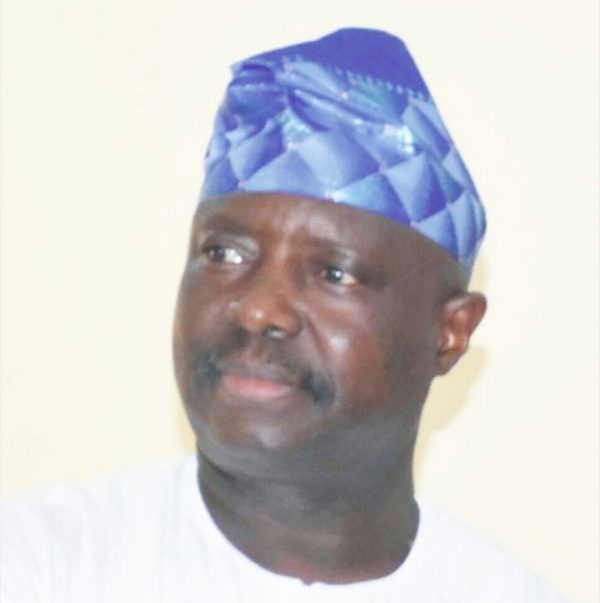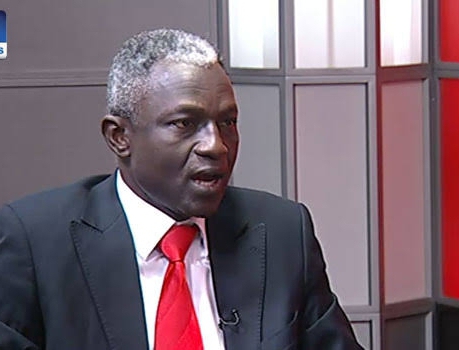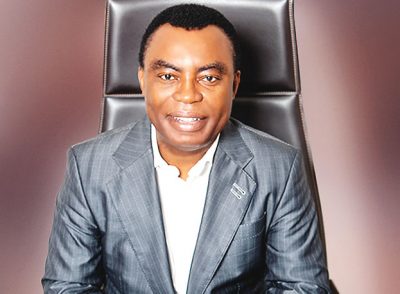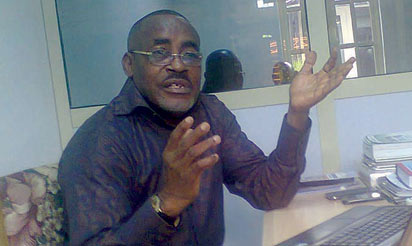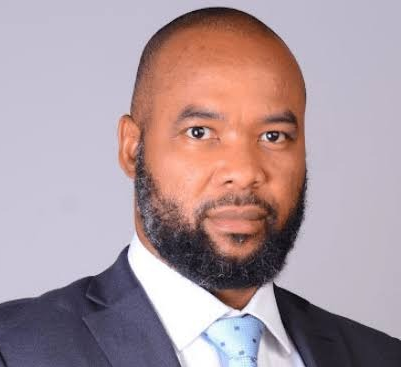Environmental Hazards: NOSDRA To Sensitize Tank Farm Operators – Musa
Lagos, Ogun Govts Must Provide Alternative Tank Farm Sites – NOSDRA
By Kenneth Jukpor
Mr. Idris Musa is the Director General, National Oil Spill Detection and Response Agency (NOSDRA). MMS Plus caught up with the NOSDRA helmsman at the 2019 African Day of Seas and Oceans and squeezed this interview as he discussed the salient functions of the agency, his strategy to correct the multiplicity of tank farms in residential areas, the agency’s rapport with crucial stakeholders and its shortcomings. Excerpts:
Recently, NOSDRA has been organizing sensitization campaigns for the midstream and downstream operators in the petroleum sector. What necessitated this drive?
I have been a foundation member from day one to where we are today. When the agency’s Act was crafted, I was part of it. The Act envisioned certain things and we had vision as well as mission. The Act empowers the agency to ensure compliance with all the existing environmental regulations in the petroleum industry. The petroleum industry in Nigeria is not just upstream. It consists of the upstream, midstream and downstream. We had all along focused more on upstream, a little on midstream and no focus at all on downstream.
Following my appointment as Director General and as part of the pioneer members of the agency, I can say that after thirteen years we have matured. We have gone full blast on the regulation of environmental issues in the petroleum industry in Nigeria. Hence, I want us to focus on the midstream and downstream which hitherto has been on holiday. The upstream operators are already aware of what to do; they can be self regulatory without us going after them except anybody that chooses to be recalcitrant.
For the midstream operators, few people are aware of the regulations, but in the downstream, there is no awareness. That is why we started with creating awareness within the midstream and particularly the downstream. That is also the reason why we met with Major Oil Marketers Association of Nigeria (MOMAN), Depot and Petroleum Products Marketers Association of Nigeria (DAPPMAN) and Independent Petroleum Marketers Association of Nigeria (IPMAN).
Of course, IPMAN has the largest footprint in the downstream in Nigeria. Recently, I had a meeting with the President of IPMAN and he came to NOSDRA office with members of his executive. We are also going to visit him in return to acknowledge his response to us. He is full of optimism and has also pledged to cooperate with us. We will all work together to have a good environment in the petroleum sector.
From your assessment, do you think that Major Oil Marketers have been more compliant than the other independent operators in Nigeria?
MOMAN would be better in compliance for now because some of them have parent organizations. If you talk of Total, there is Total Exploration and Production Nigeria Limited which is for the upstream. It also has midstream and downstream activities which is Total Oil Plc. So, such organization is fairly familiar with the rules in the upstream and this has made it easy for them to abide by the rules. The same goes for Oando and Mobil. Both are in the upstream, midstream and downstream. They are in a better position to abide by the rules more than the independent petroleum marketers.
Imagine going to someone in a village with these rules, he wouldn’t know about it. This is why we need to sensitize them. When IPMAN came to visit, we told them that we have sensitized the executive body of MOMAN, IPMAN and DAPPMAN. Because downstream has large footprints, what we want to do now is to have a delegate conference with them. We intend to call them from the zones to Abuja. We discussed with them and we realized that all of them cannot match to Abuja for one reason or the other. We now have to go to the geo-political zones, so that we will be able to meet them where they are.
Environmental management is a multi-stakeholders responsibility and everybody has to be on the same page. The approach we want to use is to play exclusiveness but all inclusiveness.
There is a huge environmental hazards posed by multiplicity of tank farms in certain residential areas like Ijegun in Satellite town, Ajegunle and Coconut axis on Mile 2 – Tin Can port access roads. How are you collaborating with the relevant stakeholders to address this issue?
This problem of tank farms is something that has been of great concern to NOSDRA and the oil and gas industry at large. We have been talking about it since 2010. Lagos State Government is worried and Nigerians are worried. If you look from Ibafo to Kirikiri jetty down to Tin Can and Apapa, you have several chains of tank farms. We are just praying that we should not expect any disaster but we need to prepare.
In the past, we have suggested a method whereby we begin to decentralize the concentration of these tank farms in the locations where they are now. For instance, in Ibafo area, the only separation between a tank farm and a residential house is just a perimeter fence. You cannot tell the person in that house not to fry plantain and the person frying plantain cannot tell the tank farm not to pump petroleum product especially PMS which is highly volatile.
Supposing there is a surge of fire as a result of the activity of the person cooking in his house, what do we do? Therefore, we need to sensitize them and move them away from that location. It is not easy to just move them overnight, there has to be a location where they would be moved to and that will be a concern for two state governments. These are the Lagos and Ogun State governments.
There also has to be a concerted effort to ensure that our pipelines are well protected so that when they are moved out of Lagos, they can receive their products wherever they are at minimum cost through piping. A lot of them are located around the water bodies in Ibafo, Tin Can Island and Apapa because of the closeness and access to the lagoon over there. If you want to move them out, the maritime tankers that bring this product will have to discharge the product to those tank farms through pipelines. I also think that they would not want to lose their products imported at high cost to oil theft or vandalism. This problem must have a multifaceted approach as it is not a one day affair; it requires concerted understanding and planning for everybody to be at peace. This is the huge problem that we need to solve as a nation right now.
What kind of sanctions do you have in place for defaulters of NOSDRA regulations?
It’s too early to talk about that. The sanctions are already there in the regulation but we don’t want to start with that.
In the past we had seen ridiculous sanctions like N10,000 for grievous offences. Are these regulations/ sanctions up to date?
Of course! Right now, the sanction that has the minimum charge is N500,000 fine per day. If you spill oil without reporting and if you default in putting in place some things that you are supposed to, you will pay N500, 000 naira for such defaults. However, we don’t want to start on this note with the penalty. You don’t start relating with your children by giving them a knock on the head.
Firstly, the operators need to know what to do and how to do it. If they refuse to do it, you now tell them about the consequences. We don’t want to scare them at all. They are following us and they understand that these rules are the best for environmental management. It is better for them to appreciate it and begin to work on self compliance than to chase them with a stick.
From today’s event, how do you marry the issue of marine biodiversity for accelerated economic growth to your activities at NOSDRA?
In oil spill management, NOSDRA is the lead agency for oil spill management in Nigeria. However, this oil spill can happen on the land, near shore and off shore. In the National Oil Spill Contingency Plan for which NOSDRA was setup, and for which NOSDRA is the custodian, there are assignments given to certain agencies of government. In this Plan, there are assignments to be carried out by the Nigerian Navy, Airfare, Army Police and other security agencies including Nigeria Security and Civil Defence Corps (NSCDC). There are also assignments that will be carried out by Nigerian Maritime Administration and Safety Agency (NIMASA).
Ships can do a few of these things; they can dump their waste water which contains oil and some other dirty things, they can also dump their sewage and toxic chemicals into the sea. NIMASA is closer to the ships.
If any maritime vessel is coming into Nigeria, NIMASA has to know and they will issue permit which will be received by the Nigerian Ports Authority (NPA). NPA also has the responsibility for any oil spill within the port area. Their duty is to ensure that oil spillage is prevented and peradventure it happens, the oil spill is cleaned up immediately. They have to ensure that these maritime tankers that bring in products have the necessary safeguard in case there is any oil spillage. They need to ensure that the maritime tankers and vessels are in good condition. They will have to respond to oil spillage first, but if it’s beyond their capacity, they will call on us. On this note, we decided to sign a Memorandum of Understanding (MoU) to enable each agency appreciate each other’s role. Although, we are the lead agency, but they have a very good responsibility to take care of the ones that are within waters.

